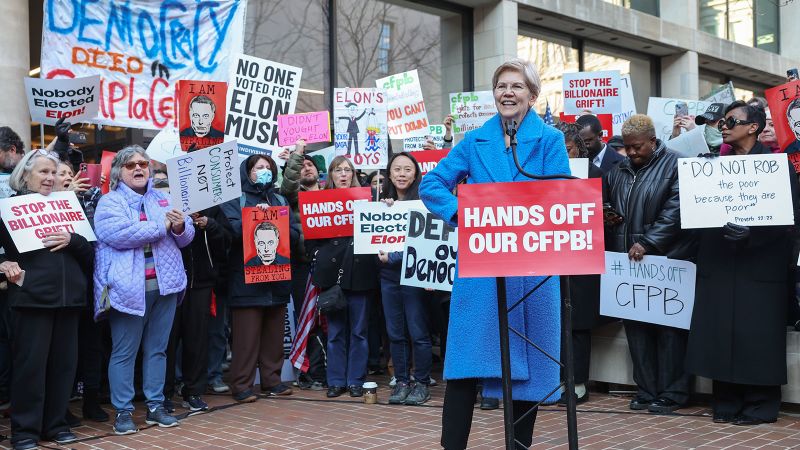
Democrats Grapple with Strategic Responses to Trump Amidst Political Uncertainty
In a period marked by division and uncertainty within the Democratic Party, leaders are questioning the most effective strategies to counter President Donald Trump. The dilemma extends beyond mere responses to his actions; it probes into the very methodologies that were employed during his initial term. How much reliance should there be on established procedures, and to what extent are they prepared to embrace more aggressive tactics?
Currently, the Democratic Party appears leaderless as potential presidential candidates hesitate to take charge. This has resulted in a stage where others are first to confront the challenges posed by Trump and his supporters. This detachment is evident within the Democratic National Committee, where the hopeful slogan from the Obama administration has been replaced by the less inspiring phrase championed by newly elected chair Ken Martin, indicating an unclear direction moving forward.
Many Democrats who are stepping up to assume leadership positions question whether the slower pace of court challenges can effectively counter the rapid actions undertaken by Trump’s appointees and allies. There is a growing concern that, regardless of favorable judgments, Trump may outright dismiss unfavorable rulings, leaving the opposition without viable recourse.
Earlier this week, Trump brushed aside concerns over legal matters, claiming compliance with the courts, while others close to him suggested that judges should not interfere with executive power. As Trump makes bold statements regarding his actions, the Democratic Party’s hopes of mounting a counteraction hinge on critical deadlines, like the upcoming government budget deadline in mid-March. This situation poses significant challenges as Democrats, not only a minority in Congress, face a Republican majority that is increasingly aligned with Trump’s administration.
Representative Hank Johnson, a Democrat from Georgia, expressed his determination to resist efforts that could jeopardize democratic principles through the budgetary process. He and several colleagues have pledged not to support any bills until what they see as a constitutional crisis is resolved. Johnson emphasizes the necessity of all available measures to oppose what he describes as a troubling trend in governance.
Within this context, some Democrats in Congress remain hopeful that history will repeat itself, recalling moments when public outcry surged in response to perceived injustices. Representative Brendan Boyle from Pennsylvania noted how past protests had galvanized support and engagement ahead of midterm elections.
The political landscape is complicated further by the urgency for action. Activists and some Democratic leaders fear that protests against Trump could set the stage for severe governmental responses, raising safety concerns amongst constituents and participants. This apprehension is not unfounded, as echoed by various congressional members who recognize the potential for escalated tensions.
Senator Cory Booker from New Jersey voiced his critique regarding the current administration’s practices, arguing for scrutinizing ongoing violations of laws and common standards. He also highlighted the importance of using all channels of communication to rally public sentiment without resorting to drastic actions like a government shutdown.
As Democrats navigate this critical phase, they find themselves in constant tension between the need for assertive opposition and the risks of overstepping boundaries. Figures like Rep. Sean Casten from Illinois highlight the growing frustrations of constituents witnessing a shift in political norms and the urgency for Democrats to take a stand against actions perceived as undermining democracy.
Meanwhile, discussions within party leadership highlight the need for adaptation. House Democratic Leader Hakeem Jeffries has been focusing the party’s message on economic issues that resonate with constituents, although he acknowledges past failures to connect voters with their initiatives.
Despite the challenges, there are glimmers of optimism regarding the party’s resilience and the shifting political landscape that could benefit them. As Trump continues to face legal struggles and dwindling legislative successes, Democrats are urged to maintain hope and remain focused on their goals. Jeffries reassured his colleagues that the tide will turn if they stay committed to their principles and engage with the public.
In conclusion, the Democratic Party is currently in a delicate balancing act, striving to forge an effective path forward while maintaining the integrity of their mission in defending democratic values against perceived authoritarian overreach. As the political climate evolves, Democrats aim to unify their strategies and ultimately reclaim support from their constituents amidst ongoing challenges.









